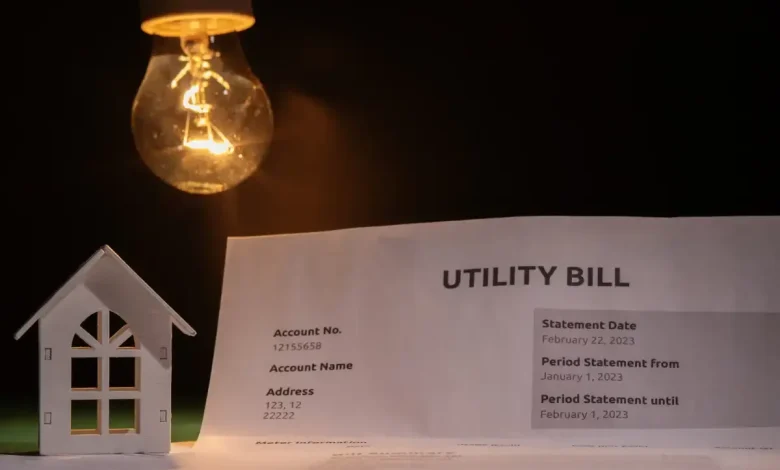Op-Ed | New Yorkers need a cop on the beat for their energy bills

Every month, the same scene plays out at kitchen tables across New York. A family opens the gas and electric bill, sees the number jump again, and starts doing the math: What can we cut this month?
They had no say in that bill, but they’re the ones scrambling to pay it.
And far too many can’t. As of this year, more than 1.2 to 1.3 million New Yorkers are behind on their utility bills — owing between $1.8 and $2.3 billion. In New York City and Westchester alone, nearly 16% of Con Edison customers ended 2024 in arrears, with almost $950 million owed. That is not a statistic. That is a picture of families underwater, seniors on fixed incomes falling further behind, and small businesses carrying balances they can’t absorb.
Yet while New Yorkers are struggling to keep up, Albany’s oversight of the system that produces these bills has barely stirred.
In recent years, utility companies like Con Edison, National Grid, NYSEG, and RG&E have returned again and again requesting permission to raise rates. Again and again, the Public Service Commission — a small group of Albany appointees — has approved those hikes. Your bills go up. Their guaranteed returns go up. And almost nobody in state government is asking the basic questions on your behalf:
Were these increases justified? Were affordability protections built in? If utilities over-collect or under-spend, does that money come back to the ratepayers or quietly pad their bottom line?
This is exactly where the State Comptroller should come in — and where the current Comptroller has been asleep at the wheel.
The Comptroller is supposed to be New York’s independent fiscal watchdog. The office has the authority to audit state agencies, authorities, and programs, to follow how public dollars flow, and to shine a light on decisions most New Yorkers never see. When it comes to your energy bills, that should mean something simple: when rates go up, someone in state government should be digging into why.
But that isn’t happening in any real or sustained way.
We have not seen consistent, tough reviews of how the PSC evaluates rate hikes — whether affordability was meaningfully considered, whether projected costs match actual spending, or whether the pattern of approvals is pushing bills higher than they need to be. And we have not seen the Comptroller in Albany making the case for stronger tools: explicit authority to scrutinize utility spending tied to PSC-approved plans, transparency requirements for how ratepayer dollars are used, and mechanisms to ensure that when utilities overcharge or underspend, the money returns to the people who paid it.
Instead, the system rolls on. Utilities file. The PSC votes. Bills go up. Debts climb. Families fall behind. And the watchdog remains silent.
For working New Yorkers, this is not an abstract regulatory problem — it is a monthly pressure point. It shows up as another $25, $40, or $60 on top of rent, groceries, MetroCards, childcare, and medication. Seniors feel it on fixed incomes. Immigrant families feel it in already overcrowded apartments. Small businesses feel it when their margins disappear.
In many parts of the state, energy bills have risen 25–35% since 2020. At the same time, new high-load users like data centers and AI facilities are driving up demand on the grid — and too often, everyday ratepayers end up subsidizing those costs while large corporate users negotiate discounts.
In this context, the Comptroller’s job is straightforward: treat every dollar on your bill like it’s a public dollar that deserves protection.
That means:
- Auditing how the PSC evaluates rate hikes — and whether affordability is truly front and center.
- Following the money on major energy and infrastructure deals where the state is providing money or incentives to see who really benefits.
- Calling out patterns where ratepayers shoulder the risk while utilities and investors collect guaranteed returns.
- Telling the Legislature, in public, exactly what new tools are needed to protect New Yorkers — and fighting to secure them.
That’s what a consumer ratepayer advocate would do.
That’s what a cop on the beat looks like in practice.
I’m running for State Comptroller because New Yorkers cannot afford more drift, more silence, or more rubber-stamping in this moment. If utilities can raise your bill, someone independent needs to be watching them. If regulators can approve billions in higher costs, someone outside that circle needs to be auditing their work and reporting back to the people who pay the price.
Yes, we need to modernize our grid and plan responsibly for new technologies. But we cannot do that on the backs of households and small businesses already stretched to their breaking point — not without real oversight and accountability.
In this economy, every dollar on your bill is a test of whose side state government is on.
New Yorkers deserve a watchdog who’s awake — a Comptroller who treats their dollars as preciously as they do. That is the job I’m asking for. And if I’m given the chance to serve, that is exactly how I’ll do it.





